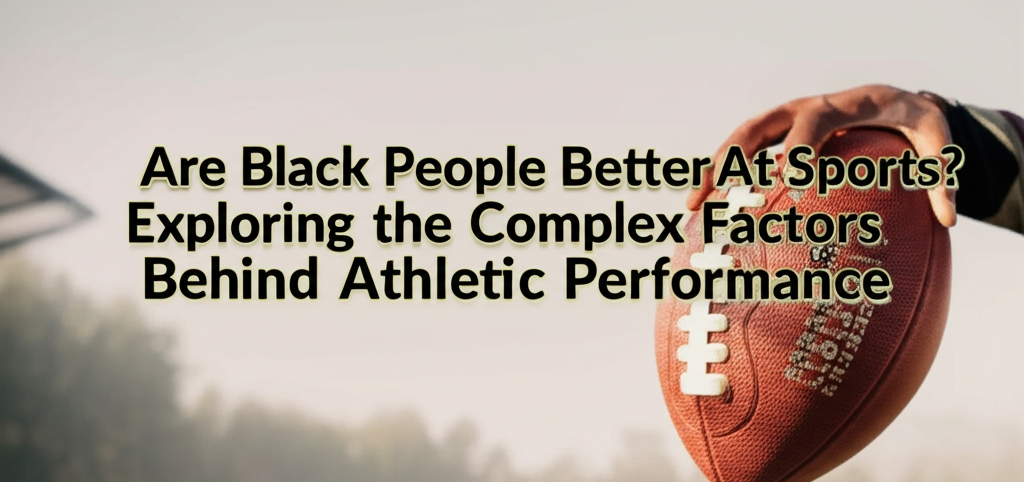Introduction Athletic performance has long been a subject of fascination, with many people wondering if certain groups or ethnicities are “better” at sports. A common question that arises is whether black people are better athletes. In this article, we will explore this question by considering various factors such as genetics, culture, environment, and societal influences. It’s crucial to approach this topic with an open mind and understand that many variables contribute to athletic success.
H2: The Role of Genetics in Athleticism
H3: Genetic Predispositions and Performance When it comes to athleticism, genetics can play a significant role. Studies have suggested that certain genetic traits might contribute to physical advantages in sports, such as muscle fiber composition and VO2 max (a measure of endurance). However, genetics alone doesn’t account for success in sports—environmental factors, training, and motivation play crucial roles.
H3: Genetic Diversity Among Black Populations It’s important to note that the African diaspora is highly diverse, with varying genetic backgrounds. While certain populations may have traits suited for sprinting, others may excel in endurance sports. This diversity challenges the notion of a simple “black advantage” in sports.
H2: Cultural and Environmental Factors
H3: Cultural Emphasis on Sports In many black communities, sports can be a key part of social life and a potential pathway to success. This cultural emphasis often leads to greater participation in sports from a young age, honing skills and fostering a deep commitment to athletic achievement.
H3: Access to Resources and Opportunities Access to training, coaching, and competition can also impact athletic success. In areas with fewer resources, black athletes often overcome significant challenges to achieve top performance. On the other hand, those with access to state-of-the-art facilities and expert guidance may have an edge, regardless of their background.
H2: The Impact of Societal Factors
H3: Socioeconomic Factors and Sports Careers Many black athletes come from disadvantaged backgrounds, where sports represent a potential escape route from poverty. This socio-economic aspect can fuel motivation and determination, leading to exceptional athletic success.
H3: Media Representation and Stereotypes The portrayal of black athletes in the media often reinforces the stereotype of superior physicality. While this recognition can be empowering, it can also overshadow the complexities of athletic performance, which involves much more than race alone.
H2: Breaking Down Stereotypes and Understanding Athletic Excellence
H3: Athletic Success is Multifactorial Athletic excellence cannot be attributed to race alone. It’s a combination of genetics, cultural background, personal drive, and the opportunities available to an individual. Focusing on these factors allows for a more holistic understanding of why certain athletes succeed.
H3: Celebrating Diversity in Sports Rather than framing the question of who is “better” at sports, it’s important to celebrate the diversity of talent in athletics. Athletes from all racial and ethnic backgrounds contribute to the richness of sports worldwide, demonstrating that excellence comes in many forms.
Conclusion While there are many factors that contribute to athletic performance, it’s crucial to avoid oversimplifying or making generalized assumptions based on race. Genetics, culture, socioeconomic factors, and opportunities all play a part in an athlete’s success. By understanding these factors, we can appreciate the diverse reasons behind athletic excellence and foster a more inclusive view of sports.

Yara Bryant is a dedicated sports journalist with a knack for breaking down game strategies and delivering in-depth analysis. With a strong background in sports coverage, she specializes in football, basketball, and motorsports, bringing fans the latest news, insights, and predictions.


No responses yet